✕

Column: industry Tag: hotels,natural phenomena,profit from natural phenomena,solar eclipse Published: 2017-06-12 15:23 Source: Author:
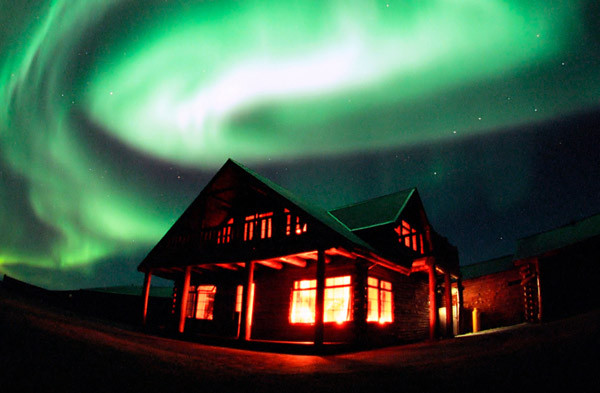
Guests at the Teton Mountain Lodge & Spa in Teton Village, Wyoming, can stargaze from the rooftop hot tub, though that space will not be utilized for the total solar eclipse event in August. (Photo: Teton Mountain Lodge & Spa)
GLOBAL REPORT—How do you sell a sunbeam, a night sky, an ocean swell?
Owners of hotels in the path of a total solar eclipse, which astronomers predict will pass over the U.S. from Oregon to South Carolina on 21 August, are quickly learning that nature sometimes provides a powerful sales pitch.
Another total solar eclipse will not occur for seven years, and for that, the path—and prime viewing spots—will be different.
“It’s not happened here before, at least not in the last 100 years or so,” said Stephen Lane, director of marketing at the Teton Mountain Lodge & Spa and its sister property the Hotel Terra Jackson Hole in Teton Village, Wyoming. “This is our one opportunity to make hay out of this amazing event.”
For some hotels around the world, the opportunity to turn a profit from natural phenomena is much more common.
The Hotel Rangá, near Hella in southern Iceland, has made a business out of the Northern Lights—the swirling, colorful night-sky phenomenon also known as the Aurora Borealis—since owner and GM Frierik Pálsson bought the property in 2003 as a retirement project.
Beach resorts in Nicaragua and Indonesia tout “perfect waves,” which consistently attract bookings from surfing enthusiasts.
The wellness-focused Four Seasons Resort Rancho Encantado in Santa Fe, New Mexico, is ramping up marketing around a spiritual vortex, “a naturally occurring energy source that is said to enhance healing,” which was identified on the property by a local shaman, according to the property’s GM Meredith Macfarlane.
But whereas these gifts from nature are essentially everyday features, and thus factored into regular rates at the hotels, the rarity of the eclipse means guests will pay more to stay in hotels where they’re likely to get a good look.
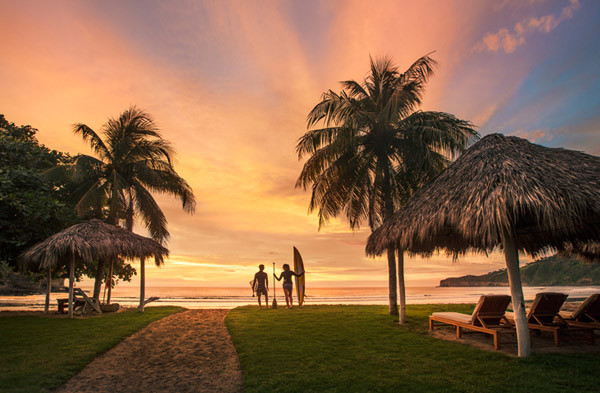
Benefit of proper planning
At the Teton Mountain Lodge and Hotel Terra, nightly rates for a standard room on the day of the eclipse are as much as $889—almost double what’s typical for that time of year. Both the 145-room Teton and the 132-room Terra are sold out for that night.
Lane said the sister properties had the foresight to begin revenue-managing for the eclipse event well in advance.
“We’ve known since before I got here, a little over three years ago, that this was going to be a major event, not just for our hotels but for the community,” he said. “We knew it was a major opportunity to capitalize with (average daily rate). … If you’re underneath that path, you’re going to see some of the highest ADR anywhere, in history really, for a lot of these properties.”
At the neighboring Amangani Resort, in Jackson Hole, Wyoming, room rates on the day of the eclipse start at $3,000 (almost three times the typical rate of $1,180), according to GM Stuart Lang. The hotel is also fully booked, with “nearly all guests … visiting specifically to witness the solar eclipse,” he said via email.
“We have been planning for this event for over a year’s time,” Lang said.
Lane said some competitors of the Teton Mountain Lodge and Hotel Terra didn’t have a plan in place.
“It’s busier in August anyway,” he said. “But certain properties didn’t realize the opportunity of having such a broader population interested in coming here at that time,” and booked at standard rates. Lane added there are some predictions that “the population of Wyoming could double on the day of the eclipse.”
Some guests who booked rooms at hotels in Oregon for the eclipse have complained that their reservations were canceled, and then the properties raised rates dramatically.
While these guests won’t be satisfied, when a hotel is upfront with those higher rates, guests often are happy to pay them, Lane said. Some hotels, including the Amangani, the Teton Mountain Lodge and Hotel Terra, have partnered with astronomy experts to enrich the experience of the eclipse for guests.
“To a lot of people this (eclipse) is a big, big deal,” he said. “They’ve been waiting on it, saving for it. It’s quite the event. They want to know they can get the most out of it, and that’s why they selected our destination. … We want that experience to be phenomenal … to make sure their experiences match their expectations with that (higher) rate.”
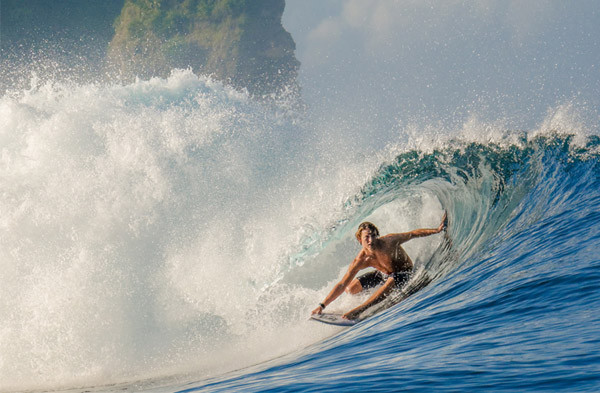
No guarantee
Guests of the Hotel Rangá?in southern Iceland aren’t guaranteed a view of the Northern Lights, but they have a good chance to see it about 10 months out of the year.
For about 60 days, from roughly 20 May to 20 July, Iceland has 24 hours of daylight a day, so stargazing is out of the question.
The Northern Lights “are always there; you just can’t see them in the summer because of the daylight,” Pálsson said. “September and October can be a very good time (to see them), not to mention in the middle of winter. The season (for the Northern Lights) is always whenever it’s dark.”
In general, Iceland is a good place for viewing the Northern Lights, Pálsson said, though not many hotels were quick to capitalize on that fact.
When Pálsson bought the 52-room Hotel Rangá in 2003, after retiring from the seafood business, he got the idea to invest in telescopes as a way of increasing activities for guests. Eventually, he added a small observatory.
“It has taken off much better than I could anticipate,” he said. “There’s been much more interest in stargazing than I thought there would be.”
For guests, the observatory is free of charge, as is the view of the Northern Lights when they appear. Pálsson said he tells guests that while he “never can guarantee” a Northern Lights experience, “we do have a reputation” for how often they can be seen from the hotel.
That’s because the hotel is in the countryside, in “absolutely a dark-sky area,” he said, “with no light pollution in the air” like what there would be in a city.
It also helps that the hotel has a “night sky warden” on staff, who “watches the night sky and, if there’s any chance of seeing (the Lights), wakes guests immediately and sends them out. … Quite often, we have all our guests standing outside at 3 o’clock in the morning in their pajamas,” Pálsson said.
The Northern Lights are quite unpredictable by nature, he added.
“For those who don’t know the Northern Lights, they are very difficult to predict,” he said. “Even if we have scientists telling us we won’t see them, sometimes when we least expect them, we all of a sudden see them. It’s something we have to be on the alert for all the time. That’s where we have been taking the service all the way.”
Pálsson admits the hotel doesn’t do a lot to revenue-manage around the Northern Lights.
“We have two price periods—one in the summer, June to the end of September, and the other period is from the first of October to the end of May,” he said.
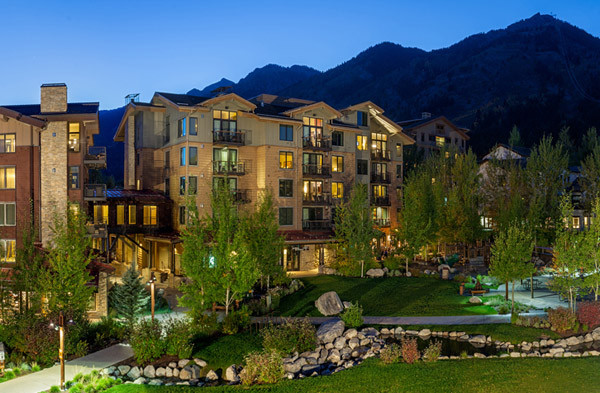
The right place
The Four Seasons Resort Encantado?in Santa Fe, New Mexico, also benefits some from luck of location.
Guests who come to the resort and spa for meditation and healing get the added benefit of being on a “spiritual vortex,” which was identified by a local Native American shaman, Macfarlane said.
There are plans to bring more attention to and take more advantage of the vortex, which the resort claims enhances healing. A deck is planned above it for use in meditation and yoga sessions; and a teepee is also being built in the area of the vortex, where spa treatments will be offered.
“We’ve had people who have stood on the vortex and actually felt a vibration within their body,” Macfarlane said, but in general guests report that “they feel much more aligned—mind, body and soul” after experiencing it.
Mukul Beach, Golf & Spa in Tola, Nicaragua, is on a crescent-shaped beach called Manzanillo Point, which is home to one of Nicaraqua’s most-coveted ocean swells, which creates a perfect point break for surfers. (Photo: Mukul Beach, Golf & Spa)
Guests check into the Mukul Beach, Golf & Spa resort in Tola, Nicaragua, for a slightly different alignment: that of body, board and wave.
About 75% to 80% of the guests at this 37-room independent hotel—located on 1,675 acres of private beach on Nicaragua’s Emerald Coast—are there to surf.
Besides the prime beachfront, part of what draws them is the promise of the “perfect wave.”
The crescent-shaped beach called Playa Manzanillo is “home to Manzanillo Point, one of Nicaragua’s most-coveted swells, which is usually big enough to lend to a perfect point break, often including three barrel sections during the small surf-time window that the wave allows,” according to the resort.
And because the beach is private, the wave is almost exclusive to resort guests.
“We call it our surf break, because it’s right there where we are,” said Joanna Evans, director of PR and marketing at Mukul Beach. “None of us can own the ocean, so we can’t say (to non-guests), ‘You can’t surf here.’ But we have direct access, the best access. You can walk out of the beach and paddle out to it. That’s pretty amazing.”
Non-guests looking to surf the wave would have to charter a boat to reach it.
Most guests at the resort are international, with a large portion coming from the U.S.
“When the resort opened, surfing was kind of there, but not necessarily a huge focus. We didn’t think people would be coming down for that,” Evans said. “As we have talked about it more, (surfing has) definitely become a driving force for why people are booking. Entire families come down to do surfing lessons together. … They realize it’s part of the lifestyle here as well.”
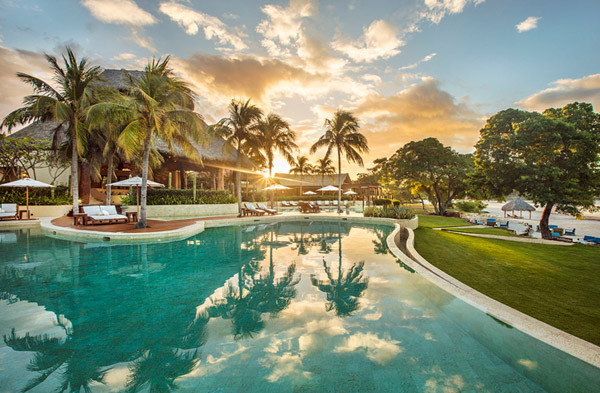
Thrilling rewards
A perfect wave, called “God’s Left,” is an exclusive feature of the Nihiwatu Resort, located on the Indonesian island of Sumba. (Photo: Nihiwatu Resort)
The Nihiwatu Resort on the remote Indonesian island of Sumba also has its own “perfect wave,” which is known as “God’s Left,” or sometimes “Occy’s Left,” after Australian surfer Mark Occhilupo, who famously conquered it in the 1992 surfing documentary “The Green Iguana.” The wave was also featured in the 1966 documentary “The Endless Summer.”
Nihiwatu?is the only resort on the island, and the wave breaks directly in front of it. Exclusive rights to the wave are granted through an agreement with the government, according to a resort spokeswoman.
While nightly room rates are not raised or lowered based on access to the wave, there are additional rates of $100 to $150 a day for surfing depending on the season.
“The surf is popular for its character,” CJ Kimmell, boathouse manager at Nihiwatu, said via email. “Even for the most experienced surfer it presents a challenge since it is so sensitive to different conditions—tides, size, strength and direction. Getting a good one isn’t as easy as it looks, but once you make the right pick, the reward is 200 to 300 (meters) long and often a thrilling ride down the line through sections of ripple walls and heaving barrels. That the (Nihiwatu) reserves the amount of surfers to 10 per day also adds to the special experience.”
Previous:Boutique investors seek quality amid high costs, supply
Next:InnSuites Ontario California Hotel and Suites Sold for $17.5 Million
Hot key words
Hot Products
Popular Vendors